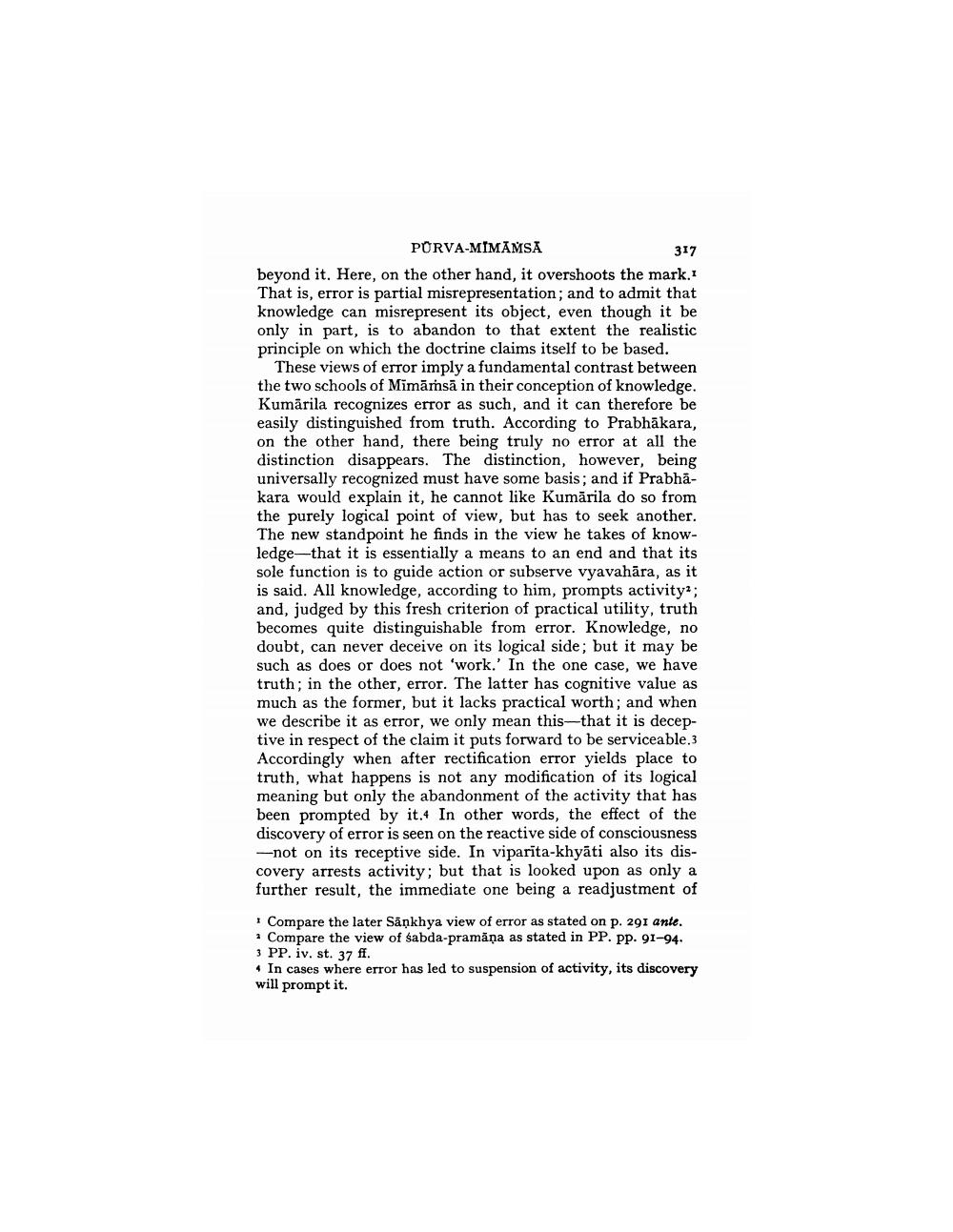________________
PORVA-MIMĀMSA
317 beyond it. Here, on the other hand, it overshoots the mark. That is, error is partial misrepresentation; and to admit that knowledge can misrepresent its object, even though it be only in part, is to abandon to that extent the realistic principle on which the doctrine claims itself to be based.
These views of error imply a fundamental contrast between the two schools of Mimārsā in their conception of knowledge. Kumārila recognizes error as such, and it can therefore be easily distinguished from truth. According to Prabhākara, on the other hand, there being truly no error at all the distinction disappears. The distinction, however, being universally recognized must have some basis; and if Prabhakara would explain it, he cannot like Kumārila do so from the purely logical point of view, but has to seek another. The new standpoint he finds in the view he takes of knowledge—that it is essentially a means to an end and that its sole function is to guide action or subserve vyavahāra, as it is said. All knowledge, according to him, prompts activity; and, judged by this fresh criterion of practical utility, truth becomes quite distinguishable from error. Knowledge, no doubt, can never deceive on its logical side; but it may be such as does or does not 'work.' In the one case, we have truth; in the other, error. The latter has cognitive value as much as the former, but it lacks practical worth; and when we describe it as error, we only mean this-that it is deceptive in respect of the claim it puts forward to be serviceable,3 Accordingly when after rectification error yields place to truth, what happens is not any modification of its logical meaning but only the abandonment of the activity that has been prompted by it.4 In other words, the effect of the discovery of error is seen on the reactive side of consciousness
-not on its receptive side. In viparita-khyāti also its discovery arrests activity; but that is looked upon as only a further result, the immediate one being a readjustment of
Compare the later Sāņkhya view of error as stated on p. 291 ante. Compare the view of sabda-pramāņa as stated in PP. pp. 91-94. 3 PP. iv. st. 37 ff. • In cases where error has led to suspension of activity, its discovery will prompt it.




